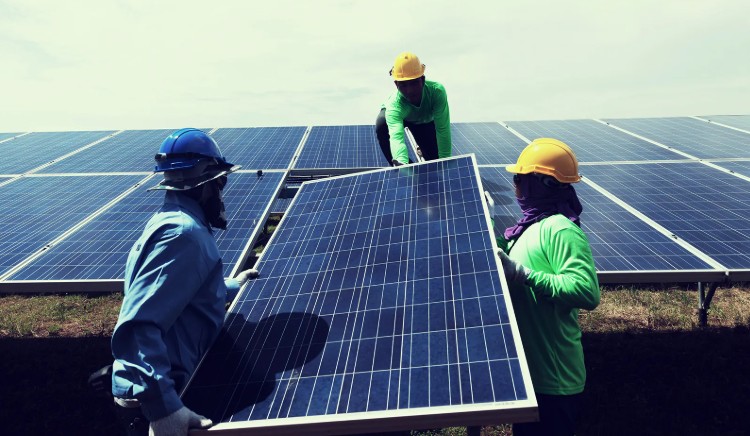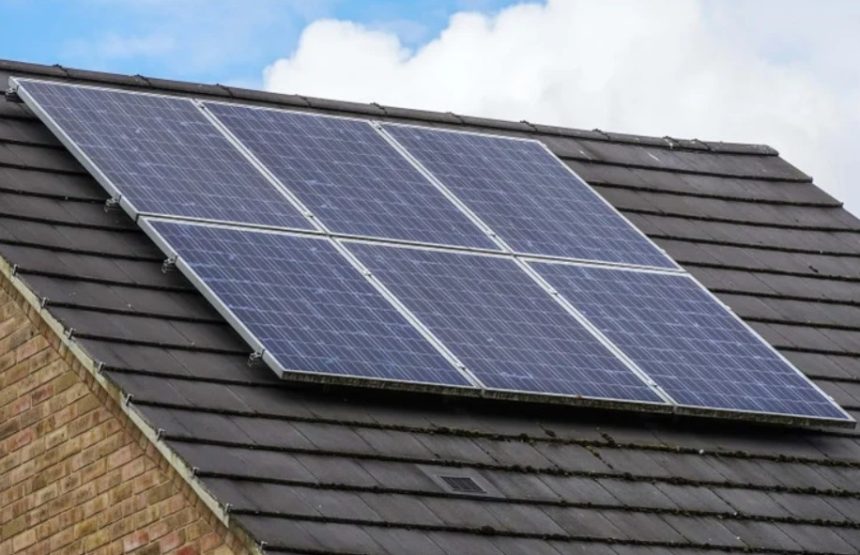In the UK today, as energy prices soar and the climate crisis becomes ever more pressing, many homeowners and businesses are left asking: are solar panels worth it UK, a sustainable investment? With rapid technological improvements and a supportive regulatory environment, 2025 has arrived with new insights that power the verdict on solar energy in the United Kingdom.
What is Driving the Solar Energy Revolution in the UK?
Over the past decade, the UK has seen a notable shift towards renewable energy. Solar energy, in particular, has captured the public imagination and government support alike. But what exactly is fuelling this renewable revolution?
- Government Incentives: A range of grants, tax breaks, and attractive feed-in tariffs.
- Technological Breakthroughs: New solar panels now offer efficiencies of up to 22%, even under less-than-ideal weather conditions.
- Environmental Concerns: An increasing commitment to reduce carbon footprints and tackle climate change.
- Long-Term Economic Benefits: Lower energy bills and increased property values are becoming commonplace.
Quick Overview Table: Renewable Energy Drivers
| Factor | Impact Level | Benefits |
| Government Initiatives | High | Grants, tax relief, and supportive policies |
| Technological Advancements | High | Increased efficiency, reliability, and durability |
| Environmental Benefits | High | Reduced CO₂ emissions and greener energy |
| Economic Advantages | Moderate to High | Lower bills and added property value |
These drivers collectively build a robust foundation for the renewable energy movement, directly contributing to the essential question: “Are Solar Panels Worth It UK?”
Are Solar Panels Worth It UK?

This subheading directly poses our keyword question, emphasizing its significance in today’s energy debate.
Why is this question so crucial?
- Cost vs. Savings: Understanding whether the initial installation costs balance out with long-term savings.
- Incentives and Rebates: Evaluating the available government schemes that may reduce upfront investments.
- Efficiency Improvements: Acknowledging how modern innovations impact overall energy capture and system longevity.
- Environmental Impact: Assessing the role of solar energy in reducing the UK’s carbon footprint while promoting sustainability.
By raising this question upfront, the discussion aims to dissect every angle, from financial viability to environmental contributions, delivering an all-encompassing perspective for UK residents.
How Financially Viable are Solar Panels for UK Households in 2025?
Financial considerations remain at the forefront when evaluating renewable energy options. For many UK homeowners, the economic aspect of investing in solar panels is crucial. Let’s explore key financial factors:
What Savings Can I Expect on My Energy Bills?
Solar panel installations translate directly to reduced electricity bills. Homeowners are beginning to see measurable savings post-installation:
- Reduction in Energy Costs: Solar energy can cut household energy bills by a considerable margin.
- Attractive Payback Period: Many installations now have a payback period ranging from 6 to 8 years.
- Increased Home Value: Energy-efficient properties are highly desirable, raising market values by up to 7%.
Financial Snapshot Table
| Category | Traditional Energy (2024) | Solar Panels (2025) |
| Average Annual Energy Cost | £1,200 | Approximately £800 |
| Payback Period | N/A | 6-8 years |
| Increase in Property Value | 0-3% | 5-7% |
What Are the Financial Incentives Available?
The UK government, along with various local schemes, has rolled out multiple initiatives aimed at reducing the initial burden of solar panel installations:
- Capital Grants: One-off payments to offset installation costs.
- Tax Relief Programs: Allow homebuyers to claim parts of their investment.
- Zero or Low-Interest Loans: Making the transition easier for many households.
With such incentives, the upfront costs are significantly mitigated, making solar energy a compelling long-term investment.
How Do Technological Advancements Improve Solar Energy Efficiency?

Innovations in solar technology have been a game-changer for the UK market, answering the ever-important question: “Are Solar Panels Worth It UK?” when considering efficiency and reliability.
What New Features Do Modern Solar Panels Offer?
Today’s solar panels have evolved significantly compared to those produced ten years ago. Here are a few standout features:
- High Conversion Efficiency: New systems convert up to 22% of solar energy into electrical power.
- Improved Durability: Advanced materials have extended the lifespan of panels.
- Smart Integration: With IoT technology, panels can now be monitored remotely, optimizing energy consumption.
- Better Aesthetic Designs: Sleek, low-profile models seamlessly integrate into modern architectural designs.
How Does Technology Contribute to Long-Term Savings?
Technological improvements lead directly to long-term savings by:
- Maximizing Energy Production: Even in diffuse light conditions, the panels capture more energy.
- Reducing Maintenance Costs: Innovative coatings and robust designs lessen the need for frequent upkeep.
- Enhancing System Scalability: Easily expandable systems that can grow with your energy needs.
These advancements reinforce the argument that solar panels are not only an environmental necessity but also a financially savvy move in 2025.
What Environmental Benefits Do Solar Panels Offer in 2025?
Beyond the financial and technological aspects, environmental impact remains a significant consideration for UK citizens. The shift towards sustainable energy is integral to meeting national and global targets for reducing greenhouse gas emissions.
How Do Solar Panels Reduce My Carbon Footprint?
Solar panels generate clean, renewable energy that replaces fossil fuels, making a tangible impact on the environment:
- Significant CO₂ Reduction: An average household can reduce its CO₂ emissions by approximately 1.2 tonnes per year.
- Reduction in Fossil Fuel Dependency: Widespread solar adoption directly leads to lower fossil fuel consumption.
- Contribution to National Sustainability Goals: Helping the UK meet its renewable energy targets and international climate commitments.
What Are the Broader Environmental Impacts?
- Cleaner Air: Decreased reliance on combustion-based power plants improves air quality.
- Sustainable Energy Production: Solar energy is an inexhaustible resource, promising long-term environmental benefits.
- Enhanced Energy Independence: The UK can reduce its dependence on imported energy sources, bolstering national security.
Why Should UK Homeowners Act Now?
With all these benefits in mind, a critical question remains: “Why Should UK Homeowners Act Now and Invest in Solar Panels?”
What are the Immediate and Long-Term Benefits?
Investing in solar panels today not only provides immediate financial relief but also secures long-term advantages:
- Immediate Energy Savings: Start reducing your monthly bills right away.
- Return on Investment: With a payback period of 6 to 8 years, significant savings accumulate over time.
- Environmental Stewardship: Contributing to a greener future by reducing your household’s carbon footprint.
- Resilience Against Future Price Hikes: With energy costs on the rise, locking in your energy source now protects you from future uncertainties.
How Do Current Market Trends Influence Your Decision?

Current trends indicate a strong upward trajectory in solar energy adoption:
- Rising Consumer Demand: More households are embracing renewable energy.
- Market Competitiveness: The solar industry continues to innovate, ensuring that installations are more affordable and efficient.
- Community and Peer Influence: A growing number of UK communities are installing solar panels, creating a ripple effect of environmental and economic benefits.
The 2025 Verdict: Are Solar Panels Worth It UK?
After a detailed review of the financial benefits, technological advancements, and environmental impacts, the verdict for 2025 is clear: Are Solar Panels Worth It UK?
Yes, they are. For UK residents, the combined advantages of reduced energy bills, robust government support, and tangible environmental benefits make solar panels an appealing, long-term investment.
Key Takeaways
- Financial Viability: With significant savings and government incentives, solar panels offer a competitive return on investment.
- Technological Efficiency: Modern systems deliver high efficiency and minimal maintenance requirements.
- Environmental Responsibility: Solar panels are essential in lowering carbon emissions and supporting a more sustainable future.
As the UK continues to adapt to new energy paradigms, embracing solar technology not only makes financial sense but also fosters a sustainable legacy for future generations. For those ready to join the renewable revolution, there has never been a better time to ask, “Are Solar Panels Worth It UK?”
For additional tailored advice, consider consulting renewable energy experts or local government resources to ensure your specific energy needs and property conditions are fully met.
Frequently Asked Questions (FAQs)
How do solar panels affect household energy bills in 2025?
Solar panels significantly reduce energy bills. With current technology and government incentives, payback periods average between 6 to 8 years while lowering monthly expenses.
What government schemes support solar panel installations in the UK?
Multiple initiatives, including capital grants, tax relief programs, and low-interest loans, are available to ease the transition to solar energy.
How do solar panels contribute to property value?
Energy-efficient homes with solar panels can typically see an increase in property value of 5-7%, driven by the growing demand for sustainable living.
Are there any disadvantages to installing solar panels?
While the benefits are substantial, potential challenges include the initial investment and the need for suitable roof conditions. However, modern financing options and technological advancements often mitigate these concerns.






